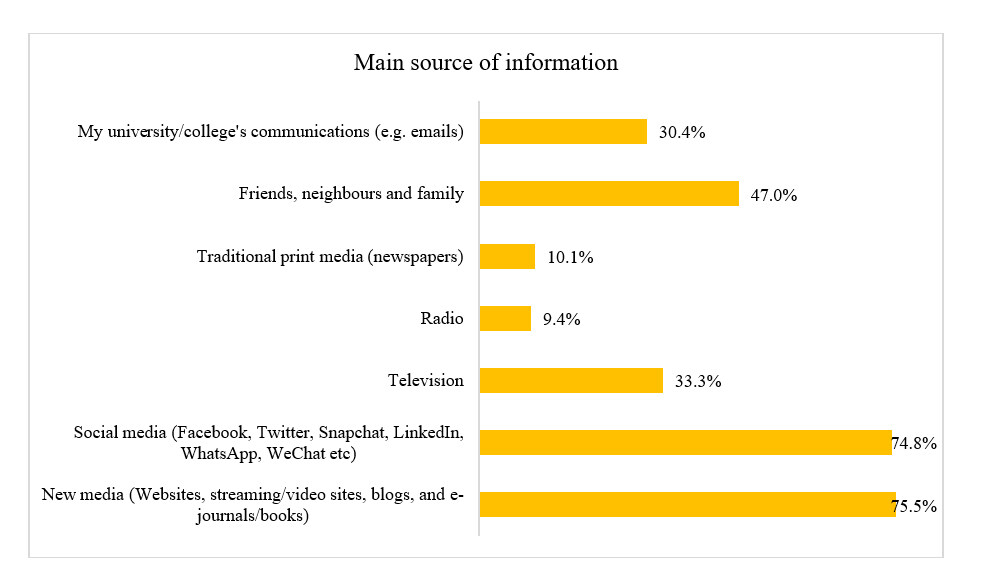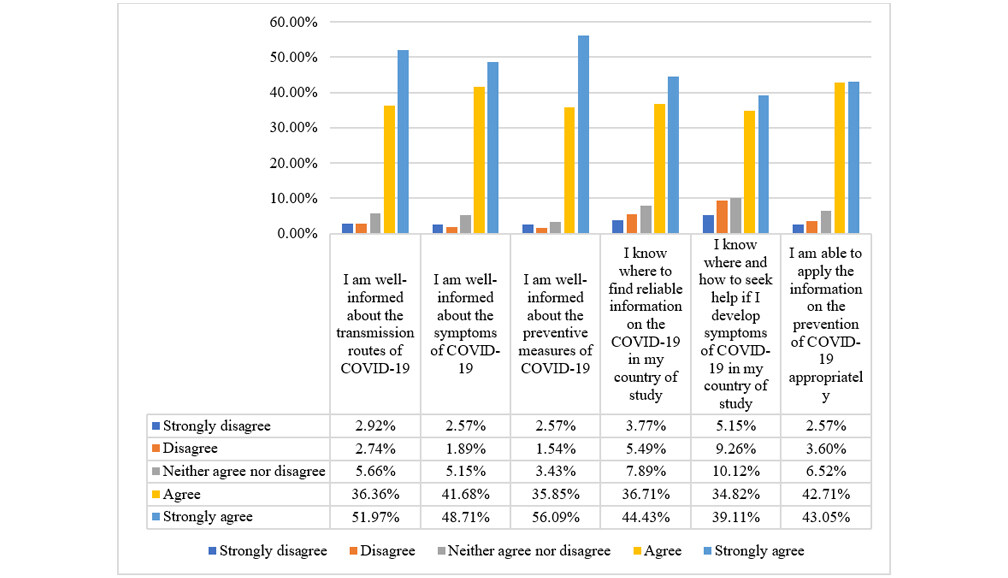

In a recent survey conducted by the School of Graduate Studies of Lingnan University (LU) on international/non-local higher education students’ physical and psychological wellbeing during the COVID-19 pandemic, nearly 90 per cent of respondents said the outbreak had caused “moderate to extreme” disruption to learning activities. Over 70 per cent expressed concern about the outbreak, while 45 per cent said they were feeling lonely. The research team advises higher education institutions to find creative and effective ways of supporting international students during this challenging time.
Between 12 April and 1 May 2020, the research team received valid responses from 583 international/non-local higher education students from 26 countries/regions in Africa, Asia, Australia, Europe, North America, and South America. About half of the respondents (46%) were research postgraduate students. At the time of the survey, most of them (61%) were still in their country/region of study.
Results show that over 70 per cent of international/non-local higher education students said they got COVID-19 information from social media and new media (Figure 1). However, 14 per cent of respondents did not know how to seek help in their study countries/regions if they were to develop COVID-19 symptoms (Figure 2).
In addition, nearly half the respondents (47.5%) felt at risk from COVID-19, and approximately 71.7 per cent expressed worry. One major source of concern was for the safety of their families as after lockdown measures in many places most of them were still abroad and far away from home. These anxieties as well as the implementation of preventive measures such as social distancing, meant that approximately 45.2 per cent of students felt lonely.
On the academic front, the majority of students felt that the COVID-19 pandemic had caused a major disruption to their education with as many as 89.6 per cent describing the effects as from moderate to extremely strong. The research team also invited respondents to evaluate their satisfaction with learning experiences during the pandemic, 49.6 per cent expressed slight to great satisfaction with current teaching and supervision arrangements. Moreover, respondents were very positive about their future. Despite their worries about the pandemic and the loneliness it was causing, the majority of the students (83.8%) were keen to return to their current institutions to continue their studies.
Prof Joshua Mok Ka-ho, Vice-President of Lingnan University and leader of this research project, stated that the pandemic has inevitably made some impacts on the physical and psychological wellbeing of international/non-local higher education students, and that universities should do more to help international students to obtain proper health information and learn about local social and healthcare support systems, as well as improving psychological support for students dealing with this pandemic and future health-related problems. Another source of anxiety is that most students rely on social media for COVID-19 information, since there is every likelihood of “infodemic” — inaccurate and sometimes, exaggerated health information — from such sources.
He added that, as international students may not be familiar with the medical service in the countries/regions they are studying in, universities should automatically provide systematic guidelines and information on COVID-19 outbreaks. For example, LU’s Health, Safety and Environment Committee has been providing the latest epidemic prevention and medical information to both the faculty and students by email since the early stages of the pandemic in Hong Kong. Even students who are not in Hong Kong can get this up-to-date, accurate information.
Prof Mok suggested that higher education institutions should be prepared to find creative and effective ways of supporting students during this challenging period, not only by email, but with also mobile instant messaging platforms, or by developing tailor-made mobile apps to maintain contact with students and provide healthcare information.
Figure 1


Figure 2


Source: School of Graduate Studies of Lingnan University (LU)








































